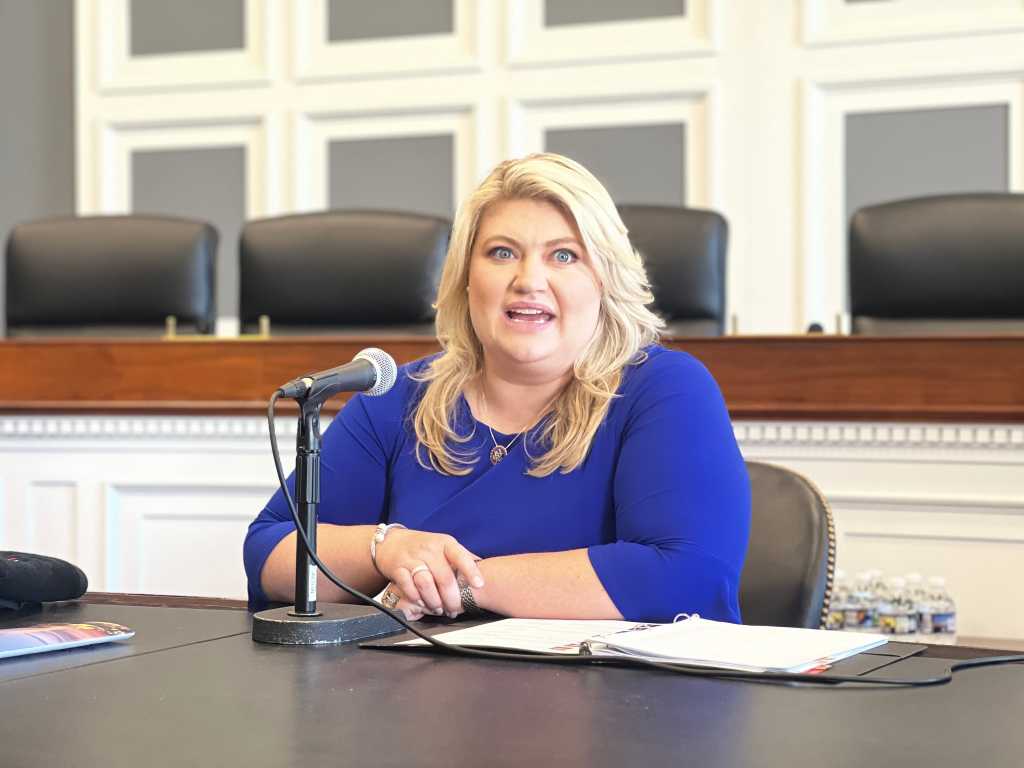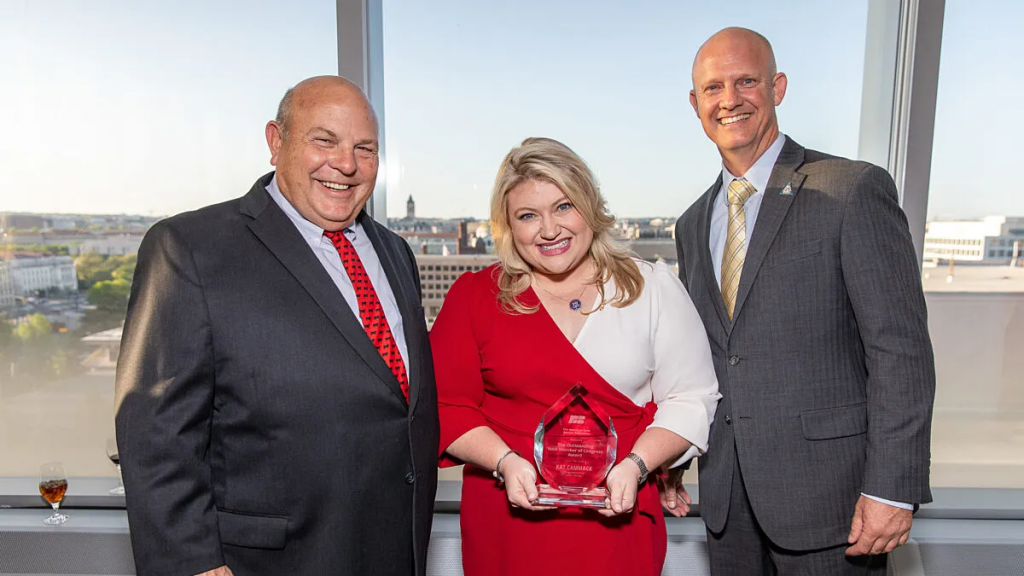
In Washington, D.C., the National Association of Farm Broadcasters visited with Congresswoman Kathrine Cammack about what she would like to see in the 2023 Farm Bill. Because of her great passion for agriculture, the Florida Republican was recently named “Outstanding New Member of Congress” by the American Farm Bureau.
“Turning into this year with the farm bill, I think there is a lot of optimism,” Cammack said. “The thing we don’t want to see is a rubber stamp of previous farm bill years, which a lot of people have assumed given the gridlock in Washington, that would be the case.”
Cammack said she is impressed with the great bipartisan work being done to complete this next farm bill.

“Understanding that we are all in this together and elevating the conversation to a place of ‘food security is national security,’” Cammack said. “So, I think with that lens, people are starting to understand that a nation that cannot feed itself is not secure.”
One of the key initiatives Cammack said she is pushing for is a reform that incentivizes SNAP (Supplemental Nutrition Assistance Program) recipients -which constitutes 82 percent of the farm bill- to buy domestic produce.
“I think that if the American taxpayers are responsible for footing the bill, then it should be American farmers’ and ranchers’ products that they are consuming,” Cammack said. “I think that is a great way to address some of the ‘food deserts’ and food scarcity issues we face in the country, while simultaneously giving an additional lifeline or opportunity to our domestic producers. I think from that, we will see innovative solutions pop up, particularly in urban centers where we see hydroponic operations being established. I think there is going to be a great way for us to give that next generation an opportunity to shine in crafting programs like the FFA Act, which is what that bill is called.”
The FFA Act, Cammack said, stands for the Farmers Feeding Americans Act.
“Additionally, in this farm bill, we are going to be seeing a lot of emphasis on rural broadband, telehealth, and rural education,” Cammack said. “We are facing a literacy crisis in this country, and a lot of it stems from the fact that there has been so much emphasis on extracurriculars, that we have forgotten the basics in a lot of ways.”
Today, Cammack said a little over 30 percent of eighth graders are proficient in reading.
“If they don’t have the basics, it is going to set them up pretty significantly in terms of challenges in their life,” Cammack said. “We are focused on ways we can deliver top-notch education opportunities for our kids in rural America, and that starts with the infrastructure, which is broadband.”
On the labor front, Cammack said, her goal is to work with her colleagues in establishing a workable guest worker program that does away with the adverse wage effect that is a year-round capability that has long-term certainty for both the employer and the employee.
Regarding the use of electric vehicles, Cammack talked about how switching to all-electric vehicles would impact the grid.
“We see what has happened in California where there has been the announcement that they are going to move away from combustion engines, and it is going to be an all-EV setup, then they tell you, ‘Don’t charge your car, don’t turn on your lights,’ then they have brown-outs,” Cammack said. “It is a joke. Our electric grid across the country is not prepared to handle the load that it would require in order to move to an EV.”
Looking at electric vehicle sales, Cammack said that last year electric vehicles accounted for around 5.3 percent of all vehicle sales in the U.S.
“I think we (Florida) are a natural gas state,” Cammack said. “We have the largest bunkering hub of LNG in North America, and you are going to see as our population grows that people are going to be looking to source energy from a variety of means.”
Cammack said she believes there are energy options ahead for what the country will need to compete globally and bring manufacturing home.
“I think wind and solar- sure- they are going to play a role,” Cammack said. “But is it going to be the driver? No.”
Due to a number of factors, Cammack said relying on electric vehicles is not a viable option for all parts of the country.
“I think you have to assume that the administration is more consumed with the political agenda than they are sound policy,” Cammack said.















